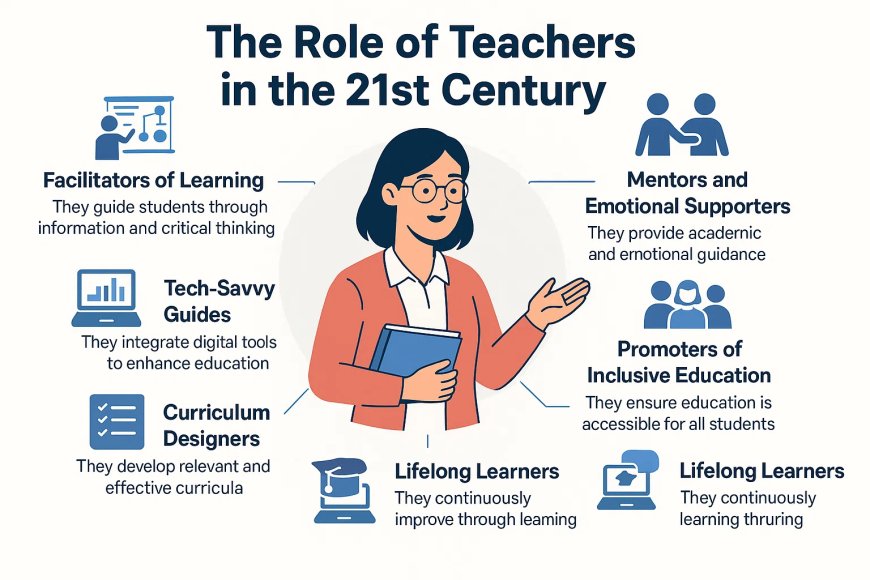The Role of Teachers in the 21st Century
Explore the evolving role of teachers in the 21st century. Learn how modern educators inspire, guide, and adapt in the age of technology and global learning.

Education is evolving rapidly, and so is the role of teachers in the 21st century. No longer confined to delivering lectures and grading papers, teachers today wear many hats. They are facilitators, mentors, content curators, tech navigators, and lifelong learners. The demands of modern society and the rise of technology have reshaped what it means to be a teacher in today’s classrooms.
1. Facilitators of Learning
In the past, teachers were the primary source of knowledge. Now, with information readily available online, their role has shifted from being knowledge providers to learning facilitators. They help students navigate vast sources of information, think critically, and apply concepts in real-life situations.
2. Tech-Savvy Guides
With digital tools becoming central to modern education, teachers are now required to be tech-savvy. They use interactive whiteboards, learning management systems, and AI-powered apps to enhance learning. From virtual classrooms to online assessments, the integration of technology is no longer optional—it’s essential.
3. Mentors and Emotional Supporters
The emotional and mental well-being of students is now a major focus. Teachers serve as mentors who guide students through academic stress, personal challenges, and social pressures. In this sense, their role goes beyond academics—they help build character, confidence, and resilience.
4. Promoters of Inclusive Education
The 21st-century classroom is more diverse than ever. Teachers must ensure that education is inclusive for all—regardless of gender, ability, language, or background. They adapt teaching strategies to meet individual learning needs and support students with different learning styles.
5. Collaborators and Community Builders
Teachers now work closely with parents, other educators, and even global communities. They create learning environments that go beyond the classroom, involving families and communities in the educational journey. Collaboration is key to helping students thrive in a connected world.
6. Lifelong Learners
In a fast-changing world, teachers must constantly upskill and adapt. Professional development, online courses, and peer learning are crucial to staying relevant. Today’s teachers are role models of lifelong learning—encouraging students to adopt the same mindset.
7. Curriculum Designers
Modern educators play a significant role in designing and updating curriculum to reflect real-world skills. This includes integrating critical thinking, problem-solving, digital literacy, and sustainability—skills needed for success in the 21st century.
???? Conclusion
The role of teachers in the 21st century is dynamic, demanding, and more important than ever. As guides, mentors, and innovators, teachers shape not only academic success but also the personal and professional growth of future generations. In a world powered by change, teachers remain the heart of education—leading the way forward.







